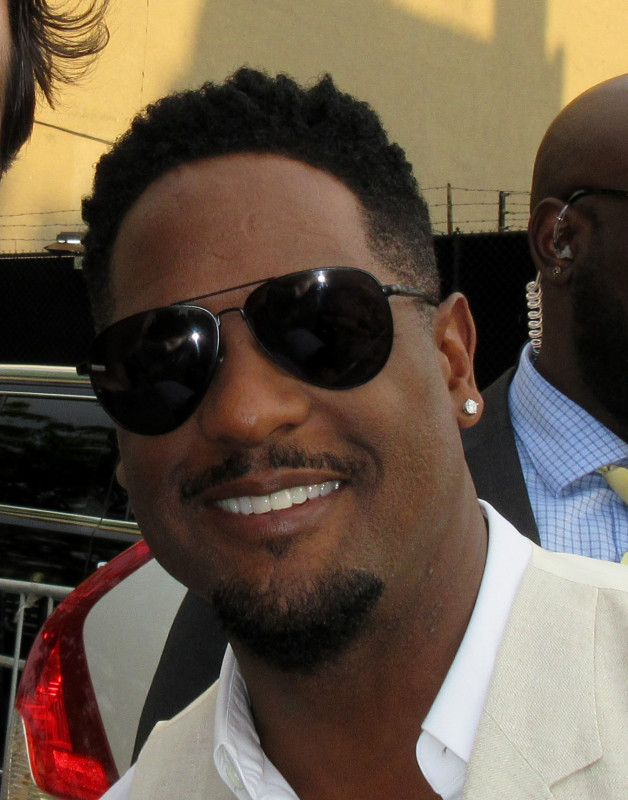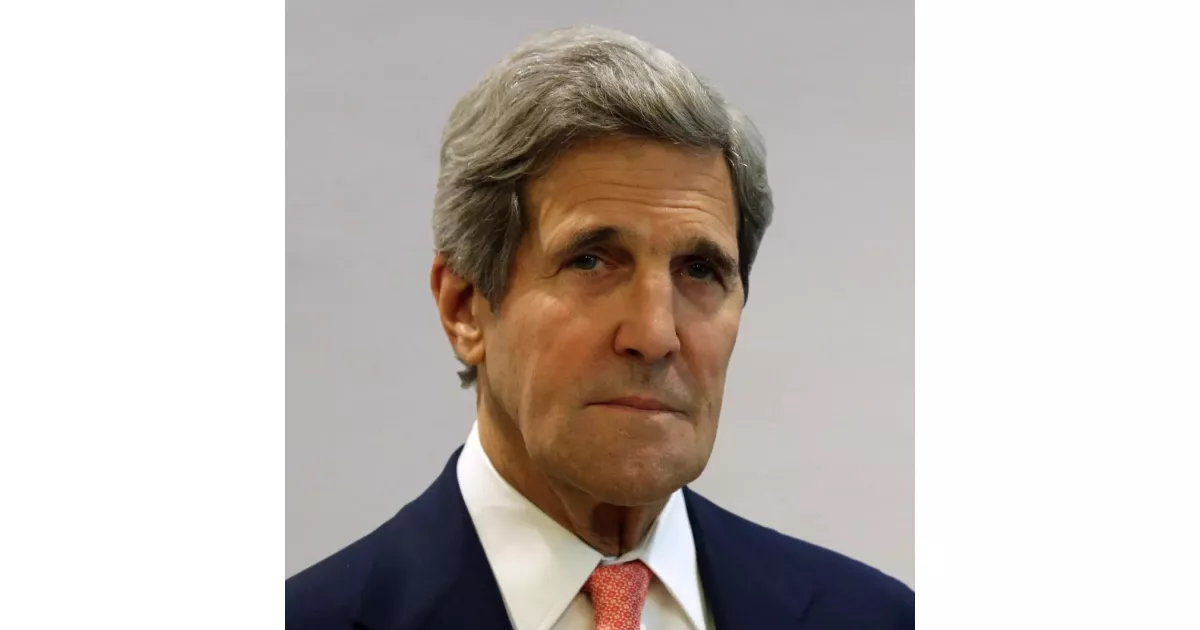From career breakthroughs to professional milestones, explore how John Kerry made an impact.
John Kerry is an American politician and diplomat, notable for his long career in public service. He served as Secretary of State under President Barack Obama, as a U.S. Senator representing Massachusetts for nearly three decades, and as the first U.S. Special Presidential Envoy for Climate. He was the Democratic presidential nominee in 2004, ultimately losing to George W. Bush. Kerry's career has focused on foreign policy, environmental issues, and domestic politics.
February 18, 1966: Enlistment in the Naval Reserve
On February 18, 1966, John Kerry enlisted in the Naval Reserve.
August 1966: Began active duty in the United States Navy
John Kerry began his active duty in the United States Navy from August 1966 until January 1970.
August 19, 1966: Began Active Duty Military Service
On August 19, 1966, John Kerry began his active duty military service.
December 16, 1966: Received Officer's Commission
On December 16, 1966, after completing Officer Candidate School, John Kerry received his officer's commission in the U.S. Naval Training Center in Newport, Rhode Island.
1966: Enlistment in the United States Naval Reserve
In 1966, after graduating from Yale University, John Kerry enlisted in the United States Naval Reserve.
April 11, 1969: Reported to Atlantic Military Sea Transportation Service
On April 11, 1969, John Kerry reported to the Brooklyn-based Atlantic Military Sea Transportation Service after receiving his third Purple Heart, where he served as a personal aide to Rear Admiral Walter Schlech.
December 1969: Extended Active Duty Obligation
In December 1969, John Kerry agreed to extend his active duty obligation until August 1970 to perform Swift Boat duty.
January 1, 1970: Temporary Promotion to Full Lieutenant
On January 1, 1970, John Kerry was temporarily promoted to full lieutenant.
August 1970: End of extended active duty
John Kerry's extended active duty obligation, which began in December 1969, ended in August 1970.
1970: Kerry Considers Running for Congress
In 1970, Kerry considered running for Congress in Massachusetts's 3rd congressional district but deferred to Robert Drinan.
1970: Kerry Wins Primary
Kerry won the primary election with 20,771 votes in 1970.
April 22, 1971: Kerry Throws Medals in Protest of the Vietnam War
On April 22, 1971, Kerry appeared before a U.S. Senate committee and participated in a demonstration with other Vietnam War veterans. During the demonstration he threw his medals and service ribbons over a fence at the United States Capitol building to protest the war.
February 1972: Kerry Plans Run for Congress
In February 1972, Kerry's wife bought a house in Worcester, with Kerry intending to run against Harold Donohue. The couple then rented an apartment in Lowell, so that Kerry could run to succeed F. Bradford Morse.
1972: House of Representatives Candidacy
In 1972, John Kerry entered electoral politics as a Democratic candidate for the United States House of Representatives in Massachusetts's 5th congressional district, but he lost to Republican Paul W. Cronin in the general election.
July 1974: Kerry Named Executive Director of Mass Action
In July 1974, Kerry was appointed as the executive director of Mass Action, an advocacy association based in Massachusetts.
1976: Kerry Graduates and Joins District Attorney's Office
In 1976, Kerry received his J.D. from Boston College, passed the bar exam, and began working as a full-time prosecutor in the Middlesex County District Attorney's office.
January 1977: Kerry Promoted to First Assistant District Attorney
In January 1977, Kerry was promoted to First Assistant District Attorney in Middlesex County, becoming a surrogate for John J. Droney.
February 1978: End of service in the Naval Reserve
John Kerry continued to serve in the Naval Reserve until February 1978.
1978: Kerry Decides to Run for Droney's Position
In 1978, Kerry decided to run for Droney's position in the election if Droney dropped out.
1978: Kerry Launches Investigation Against Senator Edward Brooke
In 1978, Kerry initiated a criminal investigation against Senator Edward Brooke, regarding misstatements during his divorce trial. Ultimately, no charges were filed.
1979: Kerry Leaves District Attorney's Office
In 1979, Kerry left the District Attorney's office with Roanne Sragow to start their own law firm. He also became a commentator for WCVB-TV and co-founded Kilvert & Forbes Ltd.
1982: Lieutenant Governor of Massachusetts
In 1982, John Kerry was elected as the 66th Lieutenant Governor of Massachusetts.
1982: Kerry Declares Candidacy for Lieutenant Governor
In 1982, Kerry declared his candidacy for Lieutenant Governor of Massachusetts, entering the primary election.
1982: Kerry Runs for Lieutenant Governor
In 1982, Kerry ran for Lieutenant Governor and did not receive the endorsement of the party regulars at the state Democratic convention.
1984: Election to the United States Senate
In 1984, John Kerry was elected to the United States Senate.
1984: Kerry Runs for U.S. Senate
In 1984, Kerry ran for the U.S. Senate seat in Massachusetts after Paul Tsongas announced his resignation.
January 2, 1985: Kerry Appointed to U.S. Senate
On January 2, 1985, Kerry was appointed by Governor Dukakis to fill the vacant U.S. Senate seat, giving him seniority over other new senators.
April 18, 1985: Kerry Meets with Daniel Ortega in Nicaragua
On April 18, 1985, Kerry and Senator Tom Harkin met with Nicaraguan President Daniel Ortega, facing criticism due to Ortega's ties to Cuba and the USSR. Kerry and Harkin talked to people on both sides of the conflict and facilitated a cease-fire agreement offer.
1985: Senator of Massachusetts
In 1985, John Kerry began representing Massachusetts in the United States Senate, a position he held until 2013.
1987: Chairman of Democratic Senatorial Campaign Committee
In 1987, John Kerry became the chairman of the Democratic Senatorial Campaign Committee.
1989: End of term as Chairman of DSCC
In 1989, John Kerry ended his term as the chairman of the Democratic Senatorial Campaign Committee.
1990: Re-elected to the Senate
In 1990, John Kerry was re-elected to the Senate.
1991: Chaired Senate Select Committee on POW/MIA Affairs
In 1991, John Kerry became chairman of the Senate Select Committee on POW/MIA Affairs.
1993: Endorsed POW/MIA Affairs Committee Report
In 1993, John Kerry endorsed the report from the Senate Select Committee on POW/MIA Affairs, stating there was no compelling evidence of Americans alive in captivity in Southeast Asia.
1994: Sponsored Resolution to End Trade Embargo Against Vietnam
In 1994, John Kerry co-sponsored a resolution with John McCain to end the trade embargo against Vietnam, intending to normalize relations.
1994: Opposition to funding for the Integral Fast Reactor
In 1994, John Kerry led opposition to continued funding for the Integral Fast Reactor, which resulted in the end of funding for the project.
1995: Diplomatic Relations with Vietnam Normalized
In 1995, President Bill Clinton normalized diplomatic relations with Vietnam, following earlier efforts in the Senate.
1996: Re-elected to the Senate
In 1996, John Kerry was re-elected to the Senate, winning against William Weld.
1996: Kerry Wins Re-election Against Weld
In 1996, Kerry faced a challenging re-election campaign against Governor William Weld, ultimately winning with 52% of the vote.
2000: Kerry Considered as Vice Presidential Running Mate
During the 2000 presidential election, Kerry was considered as a potential vice presidential running mate.
2000: Controversy Surrounding George W. Bush's Military Service
In 2000, the controversy surrounding George W. Bush's military service in the Texas Air National Guard became an issue, contrasting with John Kerry's status as a decorated Vietnam War veteran. This posed a challenge for Bush's presidential campaign.
October 9, 2002: Vote to Authorize Use of Force in Iraq
On October 9, 2002, John Kerry stated he would vote to give the President authority to use force to disarm Saddam Hussein, believing his weapons of mass destruction posed a threat.
2002: Re-elected to the Senate
In 2002, John Kerry was re-elected to the Senate.
January 23, 2003: Speech on Disarming Saddam Hussein
On January 23, 2003, John Kerry gave a speech at Georgetown University, stating the need to disarm Saddam Hussein due to his threat with weapons of mass destruction, while also warning against rushing to war without exhausting diplomatic options.
2003: Rated Top Senate Liberal
In 2003, John Kerry was rated as the top Senate liberal by the National Journal, based solely on his voting record for that year.
February 3, 2004: Victory in Iowa Caucuses
On February 3, 2004, John Kerry's victory in the Iowa caucuses revived his campaign in New Hampshire and other primary states.
March 16, 2004: Statement on $87 Billion Appropriation
On March 16, 2004, John Kerry's statement, "I actually did vote for the $87 billion before I voted against it", was used against him during his presidential campaign.
July 6, 2004: Selected John Edwards as Running Mate
On July 6, 2004, John Kerry announced his selection of John Edwards as his running mate for the presidential election.
November 3, 2004: Conceded Presidential Race
On November 3, 2004, John Kerry conceded the presidential race to George W. Bush, after receiving 48.3% of the popular vote and 251 electoral votes.
2004: Portrayed as Staunch Liberal
During the 2004 presidential election, conservative groups and the Bush campaign portrayed John Kerry as a staunch liberal.
2004: Speculation About Future Campaigns
Immediately after the 2004 election, there was speculation that John Kerry might contend for the 2008 Democratic nomination.
2004: Democratic Presidential Nominee
In 2004, John Kerry was the Democratic nominee for President of the United States, but lost the election to incumbent President George W. Bush.
2004: Democratic Presidential Nomination and Election Loss
In 2004, John Kerry won the Democratic presidential nomination alongside Senator John Edwards but ultimately lost the Electoral College and the popular vote to George W. Bush.
2004: Swift Boat Veterans for Truth Oppose Kerry's Campaign
In 2004, during Kerry's presidential campaign, a group called Swift Boat Veterans for Truth (SBVT) formed to oppose Kerry's campaign. The group questioned Kerry's war record and military awards through press conferences, ads, and a book. The controversy led to the political term "swiftboating."
2004: Posting Military Records
In 2004, during the election, John Kerry posted his military records at his website and permitted reporters to inspect his medical records.
2005: Raised Funds Through Keeping America's Promise
In 2005, John Kerry raised over $5.5 million for other Democrats through his political action committee, Keeping America's Promise.
2005: Released Military and Medical Records
In 2005, John Kerry released his military and medical records to the representatives of three news organizations.
October 30, 2006: Kerry Speaks at Campaign Rally for Phil Angelides
On October 30, 2006, Kerry spoke at a campaign rally for Democratic California gubernatorial candidate Phil Angelides, stating, "If you don't study hard, you get stuck in Iraq."
2006: Generated Funds for Democratic Candidates
During the 2006 election cycle, John Kerry's campaign operation generated more than $10 million for various party committees and candidates, focusing on the midterm elections.
January 10, 2008: Endorsed Barack Obama for President
On January 10, 2008, John Kerry endorsed Illinois Senator Barack Obama for president.
October 1, 2008: Voted for Emergency Economic Stabilization Act
On October 1, 2008, John Kerry voted in favor of the Emergency Economic Stabilization Act of 2008, also known as the TARP bailout.
2008: Re-elected to the Senate
In 2008, John Kerry was re-elected to the Senate.
2008: Possible Contender for 2008 Nomination
In 2008, some Democrats mentioned John Kerry as a possible contender for the Democratic nomination.
January 2009: Chairman of Senate Foreign Relations Committee
In January 2009, John Kerry replaced Joe Biden as the chairman of the Senate Foreign Relations Committee.
August 25, 2009: Senior Senator from Massachusetts
On August 25, 2009, John Kerry became the senior senator from Massachusetts, following the death of Ted Kennedy.
May 2011: Kerry's Diplomatic Efforts in Afghanistan and Pakistan
In May 2011, Kerry undertook another trip to Afghanistan and Pakistan, acting as an envoy during a time of crisis. Kerry sought and retrieved from the Pakistanis the tail-section of the U.S. helicopter which had had to be abandoned at Abbottabad during the bin Laden strike.
2011: Supported American Military Action in Libya
In 2011, John Kerry supported American military action in Libya.
December 15, 2012: Reports of Nomination for Secretary of State
On December 15, 2012, news outlets reported that Barack Obama would nominate John Kerry to succeed Hillary Clinton as Secretary of State.
2012: Debate Prep for Obama
During the 2012 Obama reelection campaign, John Kerry participated in debate preparation with the president, impersonating Mitt Romney.
January 2013: Nomination as Secretary of State
In January 2013, John Kerry was nominated by President Obama to succeed Hillary Clinton as Secretary of State.
January 24, 2013: Confirmation Hearing
On January 24, 2013, John Kerry's confirmation hearing took place before the Senate Foreign Relations Committee.
January 29, 2013: Confirmed as Secretary of State
On January 29, 2013, John Kerry was confirmed as Secretary of State by the full Senate with a vote of 94–3.
February 1, 2013: Sworn in as Secretary of State
On February 1, 2013, John Kerry was officially sworn in as Secretary of State.
July 30, 2013: Israeli-Palestinian Negotiators Met
On July 30, 2013, Israeli and Palestinian negotiators met at the State Department without American mediators, following a dinner hosted by John Kerry the previous evening.
August 21, 2013: Advocacy for military force against Syria
Following the chemical weapons attack on Ghouta suburbs of Damascus on August 21, 2013, John Kerry became a leading advocate for the use of military force against the Syrian government.
September 27, 2013: Met with Iranian Foreign Minister
On September 27, 2013, John Kerry met with Iranian Foreign Minister Mohammad Javad Zarif during the P5+1 and Iran summit, marking the highest-level direct contact between the United States and Iran in six years.
November 2013: Remarks on the Monroe Doctrine
In November 2013, John Kerry stated before the Organization of American States that the era of the Monroe Doctrine was over, emphasizing equality and shared responsibility among American states.
2013: Secretary of State
In 2013, John Kerry became the 68th United States Secretary of State, serving under President Barack Obama until 2017.
July 20, 2014: Declaration on Syria chemical weapons deal
On July 20, 2014, John Kerry declared that a deal was struck to remove 100 percent of the chemical weapons out of Syria.
2014: Initiation of Israeli-Palestinian Peace Talks
In 2013-2014, as Secretary of State, John Kerry initiated the Israeli-Palestinian peace talks.
2014: Ranked in Ivory Tower Survey
In 2014, John Kerry tied for 11th place in Foreign Policy Magazine's Ivory Tower survey of international relations scholars, when asked about the most effective U.S. Secretary of State in the past 50 years.
September 2015: Unveiling of "Global Connect" initiative
In September 2015, the U.S. Department of State unveiled "Global Connect", an initiative to provide internet access to over 1.5 billion people globally within five years.
2015: Signing of the Paris Agreement
In 2015, John Kerry, representing the United States, signed the Paris Agreement on climate change.
April 2016: Signing of the Paris Climate Accords
In April 2016, John Kerry signed the Paris Climate Accords at the United Nations in New York.
November 11, 2016: Visit to Antarctica
On November 11, 2016, John Kerry became the first Secretary of State and highest-ranking U.S. official to visit Antarctica, where he spent two days meeting with researchers.
December 28, 2016: Criticism of Israel's settlement policies
On December 28, 2016, John Kerry criticized Israel's settlement policies following United Nations Security Council Resolution 2334. This led to mixed reactions, including criticism from Israeli Prime Minister Benjamin Netanyahu and distancing from UK Prime Minister Theresa May.
2016: Investment in wireless broadband network in India
In 2016, John Kerry announced a $171 million investment with OPIC to enable a low-cost wireless broadband network in India through Tikona Digital Networks.
January 20, 2017: End of diplomatic work and participation in Women's March
On January 20, 2017, John Kerry retired from diplomatic work following the end of the Obama administration and took part in the 2017 Women's March in Washington, D.C.
2017: End of Secretary of State Tenure
In 2017, John Kerry concluded his service as the U.S. Secretary of State, a position he had held since 2013 during Obama's second term.
2017: Reversal on nuclear power stance
In 2017, John Kerry reversed his position on nuclear power due to increasing climate change concerns, supporting fourth-generation nuclear energy.
2017: End of term as Secretary of State
In 2017, John Kerry's tenure as the 68th United States Secretary of State came to an end after serving since 2013 in the Obama administration.
November 23, 2020: Appointment as special envoy for climate
On November 23, 2020, Joe Biden's transition team announced that John Kerry would take a full-time position as a special envoy for climate, serving on the National Security Council.
January 2021: Appointment as U.S. Special Presidential Envoy for Climate
In January 2021, John Kerry returned to government as the first person to hold the position of U.S. Special Presidential Envoy for Climate under President Joe Biden.
January 20, 2021: Assumption of office as special envoy for climate
On January 20, 2021, John Kerry assumed office as special envoy for climate following Joe Biden's inauguration.
2021: U.S. Special Presidential Envoy for Climate
In 2021, John Kerry became the first U.S. Special Presidential Envoy for Climate.
June 2023: Visits to Israel, Jordan, and the United Arab Emirates
In June 2023, John Kerry visited Israel, Jordan, and the United Arab Emirates, emphasizing the need for climate legislation and the renewal of the "Memorandum of understanding between Israel and the United States Environmental Protection Agency".
July 2023: Visit to China for climate cooperation
In July 2023, John Kerry visited China to advance climate cooperation. The visit resulted in some progress regarding "methane reduction commitments; reducing China's reliance on coal; China's objections to trade restrictions on solar panel and battery components; and climate finance."
July 2023: Visit to India on Climate Action
In July 2023, John Kerry visited India where he declared the US commitment to deliver 100 billion dollars for climate action to low income countries.
January 13, 2024: Revelation of plans to step down as U.S. climate envoy
On January 13, 2024, sources revealed that John Kerry would step down as U.S. climate envoy by the upcoming spring, planning to remain active in climate finance.
March 6, 2024: Resignation as U.S. climate envoy
John Kerry officially resigned from his position as U.S. climate envoy on March 6, 2024.
2024: End of term as special envoy
In 2024, John Kerry concluded his service as the U.S. Special Presidential Envoy for Climate.
Mentioned in this timeline

Donald John Trump is an American politician media personality and...

Barack Obama the th U S President - was the...

Bill Clinton served as the nd U S President from...

Hillary Diane Rodham Clinton is a prominent American politician lawyer...

George W Bush the rd U S President - is...

Joe Biden is an American politician who served as the...
Trending

32 minutes ago Blair Underwood Discusses Fame, Staying True, and Almost Passing on 'Set It Off'

32 minutes ago Zach Braff reflects on Scrubs' return and auditioning six times 25 years ago.

32 minutes ago Embiid Probable, Powell's Status Uncertain for Sixers-Heat Game: Injury Report Details
33 minutes ago Ghosts Season 5 Premieres: New Spirits and More Laughs on Paramount+

34 minutes ago Desmond Bane, Anthony Edwards Fined $25K by NBA for Throwing Balls

2 hours ago Kim Mulkey's LSU Tigers: NCAA Tournament Seeding Possibilities and AP Poll Ranking
Popular

Jesse Jackson is an American civil rights activist politician and...

Susan Rice is an American diplomat and public official prominent...

Barack Obama the th U S President - was the...

XXXTentacion born Jahseh Dwayne Ricardo Onfroy was a controversial yet...

Michael Joseph Jackson the King of Pop was a highly...

Kashyap Pramod Patel is an American lawyer who became the...
